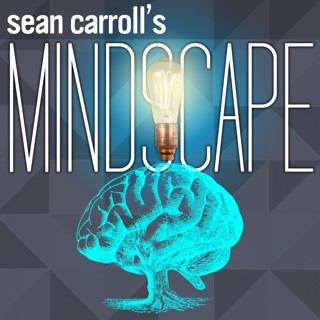
314 | Karen Lloyd on the Deep Underground Biosphere
There are living creatures dwelling deep below the surface of the Earth, as deep as we are able to drill. These hearty microorganisms are related to more familiar life forms on land and under water, b...
12 Touko 20251h 9min

313 | Eric Topol on the Changing Face of Medicine and Aging
Medical science is advancing at an astonishing rate. Today we talk with leading expert Eric Topol about two aspects of this story. First, the use of artificial intelligence in medicine, especially in ...
5 Touko 20251h 12min

AMA | May 2025
Welcome to the May 2025 Ask Me Anything episode of Mindscape! These monthly excursions are funded by Patreon supporters (who are also the ones asking the questions). We take questions asked by Patreon...
28 Huhti 20253h 38min

312 | Thomas Levenson on the Mutual History of Humans and Germs
The germ theory of disease is a crowning achievement of science, up there with modern physics, continental drift, and evolution via natural selection. (Even if there will always be cranky skeptics.) B...
21 Huhti 20251h 31min

311 | Annaka Harris on Whether Consciousness is Fundamental
Questions about consciousness range from the precise and empirical -- what neurons fire when I have some particular experience -- to the deeply profound -- does consciousness emerge from matter, or do...
14 Huhti 20251h 10min

AMA | April 2025
Welcome to the April 2025 Ask Me Anything episode of Mindscape! These monthly excursions are funded by Patreon supporters (who are also the ones asking the questions). We take questions asked by Patre...
7 Huhti 20253h 30min

310 | Marc Kamionkowski on Dark Energy and Cosmic Anomalies
Cosmologists were, let us be honest, pretty stunned in 1998 when observations revealed that the universe is accelerating. There was an obvious plausible explanation, the cosmological constant proposed...
31 Maalis 20251h 26min

309 | Christof Koch on Consciousness and Integrated Information
Consciousness is easier to possess than to define. One thing we can do is to look into the brain and see what lights up when conscious awareness is taking place. A complete understanding of this would...
24 Maalis 20251h 20min














